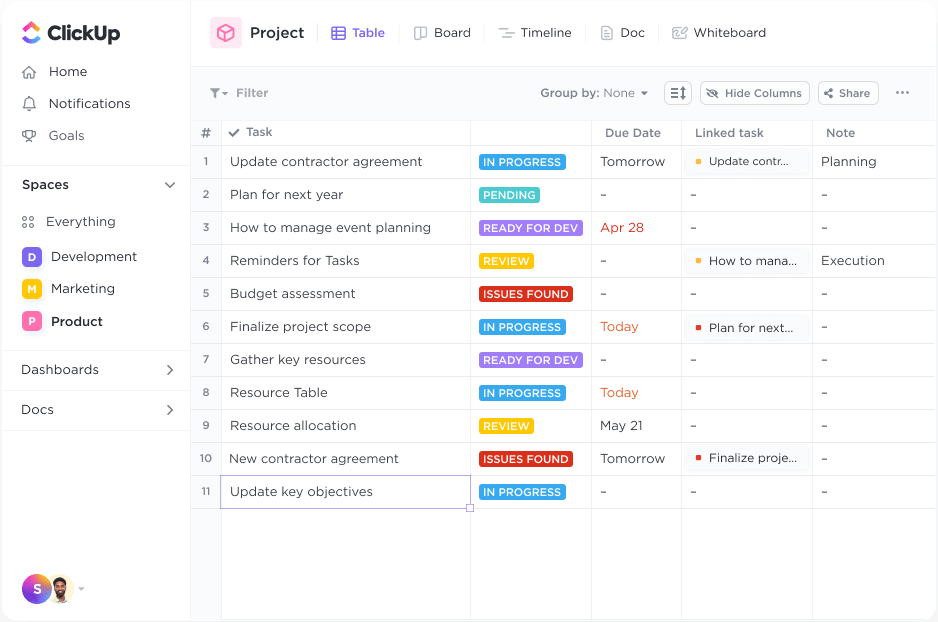5 Simple Steps to Insert Data Tables in Excel

Whether you're a seasoned data analyst or a beginner trying to organize your monthly budget, inserting data tables in Excel can significantly streamline your work. Excel tables provide an organized framework to manage data, allowing for easy analysis, sorting, and even visualization through charts and graphs. Here's how you can create and customize your data tables in Microsoft Excel in just five simple steps:
Step 1: Open or Create a New Workbook

Start by opening Excel on your computer or launching an existing workbook where you wish to add a table:
- Click on the Microsoft Excel application or type ‘Excel’ into your search bar to launch the program.
- If you are starting anew, click on ‘Blank workbook’.
- If you already have a workbook, simply open it from ‘Recent’ or ‘File > Open’.

Step 2: Enter Data

Before creating a table, you need to have your data in place:
- Click on any cell where you want your data to start.
- Begin entering your data, ensuring that each column has a header row.
- Your data should be organized in rows and columns, with related information grouped together.
✍️ Note: Data consistency is key for tables to function correctly. Avoid blank rows or columns within your dataset.
Step 3: Select Data and Insert Table

Once your data is ready, follow these steps:
- Select the range of cells that you want to include in your table by clicking and dragging your cursor.
- On the ribbon, go to the Insert tab.
- Click on ‘Table’ in the Tables group. You can also use the shortcut
Ctrl+Tto quickly create a table. - A dialog box will appear asking if your table has headers. If it does, ensure the ‘My table has headers’ checkbox is selected, then click ‘OK’.
| Step | Action |
|---|---|
| 1 | Select data |
| 2 | Insert Table |
| 3 | Confirm headers |

Step 4: Customize Your Table

Now that your table is created, you can enhance its functionality:
- Change the table style by clicking within the table, then selecting ‘Design’ under the Table Tools. Here, you’ll find a plethora of formatting options to suit your aesthetic or corporate standards.
- Adjust table behavior like sorting, filtering, and calculations under the ‘Design’ tab.
🔍 Note: Ensure to review the ‘Total Row’ feature if your table requires automatic calculations.
Step 5: Utilize Table Features

Excel tables come with several features to help manage data effectively:
- Filtering and Sorting: Use the dropdown arrows in each column header to sort or filter data.
- Structured References: When you reference your table in formulas, Excel uses table names instead of cell references, which is more intuitive.
- Data Analysis: With the Analyze tab, you can explore options like ‘Subtotal’, ‘AutoFilter’, or ‘Remove Duplicates’.
- Charts and Graphs: Tables can be easily converted into visual representations for reporting purposes.
The process of inserting data tables in Excel is straightforward yet powerful, providing you with the tools to organize, analyze, and present data effectively. By following these steps, you can quickly turn raw data into actionable insights, ensuring your Excel workbooks are both functional and visually appealing. Remember, consistency in your data input is crucial for the table to function at its best, and don’t shy away from exploring the array of features Excel offers to manage your data seamlessly.
Can I convert existing data into a table?

+
Yes, you can easily convert your existing data into a table by selecting the range and then inserting a table via the Insert tab or Ctrl+T.
How do I sort data in an Excel table?

+
To sort data in an Excel table, click the dropdown arrow in the column header you wish to sort by and choose your sorting criteria (A to Z, Z to A, etc.).
What happens if I add more data to my table?

+
Excel automatically extends the table range to include new rows or columns of data you add, maintaining the table’s formatting and behavior.